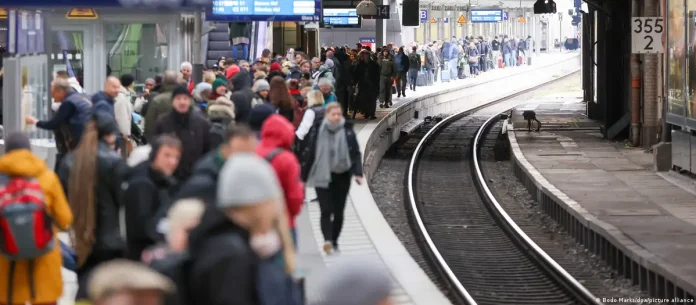The German GDL union, consisting mainly of train drivers, announced a six-day strike early Monday morning, according to Bild.
The strike will last from 2am on January 23 until 6pm on January 29. Although it is the latest in a series of GDL strikes, the six-day action will last longer than the previous ones.
German railway operator (DB) attempted on Friday to persuade the union to return to the negotiating table with a new wage and conditions offer, which GDL said it had rejected.
With its third and supposedly improved offer, Deutsche Bahn has again shown that it is continuing its previous course of noncompliance and confrontation — there’s no trace of a willingness to reconcile.
The GDL held two major warning strikes at the end of 2023 and then another in early January, which lasted three days and led to a drastic reduction in available services. DB tried to stop the strikes earlier this month through an injunction but failed.
Martin Seiler, Deutsche Bahn’s head of human resources, criticised the GDL on Friday, saying it was using the strikes as a means of self-promotion. Its latest offer to the GDL called for an average 4.8 per cent pay rise for employees starting in August and a further 5 per cent from April 2025, DB reported.
DB stated that the terms and conditions would also include a compensation payment to account for inflation, which would be fixed for a period of 32 months.
Starting in 2026, it will also offer employees working in shifts the option to change from an average of 38 hours a week to 37 or receive additional pay if they do not want to reduce their workload.
Meanwhile, the GDL is demanding an extra 550 euros (about $600) a month for employees before tax deductions and inflation compensation, fixed for a period of 12 months only. It is also calling for an immediate reduction in shift workers’ working hours from 38 to 35 with no change in pay.
DB argued that one of the reasons this was not feasible was that the company already struggled to recruit new staff, while reducing the working hours of existing staff by such an amount would exacerbate staff shortages.
